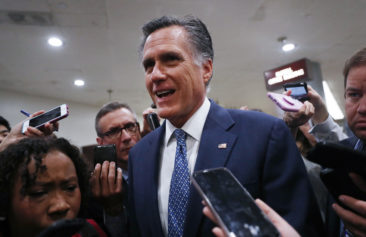Mitt Romney’s new running mate, Rep. Paul Ryan of Wisconsin, built his reputation on his austerity budget proposals to slash federal spending and the size of government.
The House Budget Committee chairman has argued that it’s responsible belt-tightening and necessary to keep the U.S. from fiscal disaster. On bigger issues, such as Medicare spending, Ryan has made some adjustments in his latest budget proposal—keeping the program as an option, compared to a year ago when he appeared bent on gradually eliminating it.
Ryan still seeks huge cuts in spending, some that seem far removed from the average American’s concerns. A closer look, however, suggests that over the next decade life as we live it could shift from mere inconvenience to a real threat to the way we maintain our health and safety.
According to Third Way, a centrist think tank, Ryan’s budget resolution would hit basic government services in ways most Americans have not even begun to consider.
Even in an interview on the CBS news program “60 Minutes” Sunday, Romney suggested he would focus on his own budget plan more than his running mate’s. And with good reason: while the idea of being fiscally responsible sounds good, the actual cuts may prove to be less popular with the electorate.
Ryan’s budget would reduce funding levels for the nation’s air traffic control system over the next 10 years. If that held up, Third Way estimates, the FAA would lose more than 3,600 air traffic controllers, adding 2,511 flight cancellations and 55,791 delays annually. That would strand more than 123,000 travelers and make 2.7 million more people late every year. Excluding weather delays, there were an average of 11,800 cancellations and 263,000 delays last year due to air traffic control problems.
Additionally, more luggage would go unscreened on U.S. passenger flights each year, even though Congress passed a law in 2007 requiring the Transportation Security Administration (TSA) to screen all cargo bound for U.S. airports.
You think traffic delays are bad now?
Ryan’s budget proposal cuts 15.8 percent for natural resources and environment over 10 years, resulting in fewer screenings by Environmental Protection Agency (EPA). That means fewer major polluters will be caught, fined and/or shut down.
Third Way cited an EPA compliance report for fiscal 2010 that reported agency enforcement prevented an estimated 680 to 1,700deaths from heart or lung disease and 12,000 fewer cases of asthma.
It may not sound like a big deal for black folks until you realize that African Americans are 30 percent more likely than white Americans to suffer from asthma, according to the federal Office of Minority Health.
In 2010, almost 4,500,000 non-Hispanic Blacks reported that they currently have asthma. Black children are 3.6 times more likely to visit the emergency department for asthma. In 2008, African Americans were three times more likely to die from asthma related causes than the white population. From 2003-2005, African American children had a death rate 7 times that of non-Hispanic white children.
Long-range weather forecasting also would be affected. Cuts of 4 to 18 percent a year in the National Oceanic and Atmospheric Administration for the next three years would mean the agency would not finish the next polar-orbiting satellite by 2016, meaning weather forecasts would be only half as accurate for four to eight years until another satellite is launched.
It may be a minor inconvenience when you’re trying to plan your next picnic, but it could pose a major problem in forecasting hurricanes and severe storms and providing weather data that could help state and local governments determine when evacuations are in order. The Federal Emergency Management Agency (FEMA) would take a hit, too.
President Obama is proposing an increase in transportation funding of about 27 percent a year for the next 10 years to address backlogs in infrastructure repairs to federal, state and local bridges in roads. Ryan’s budget would cut funding levels by 7.5 percent annually for the same period.
That could cost jobs, not create them, not to mention the threat to public safety. Congress began steadily increasing funding to repair and replace deteriorating bridges after the collapse of a 40-year-old interstate highway bridge in Minneapolis in 2007. And there is a backlog of more than 5,300 federal highway bridges and 62,000 along state and local roads.
There is responsible spending and there is being penny wise and pound foolish. Risking public safety to make a point about fiscal responsibility certainly seems to be the latter.
Jackie Jones, a journalist and journalism educator, is director of the career transformation firm Jones Coaching LLC and author of “Taking Care of the Business of You: 7 Days to Getting Your Career on Track.”

